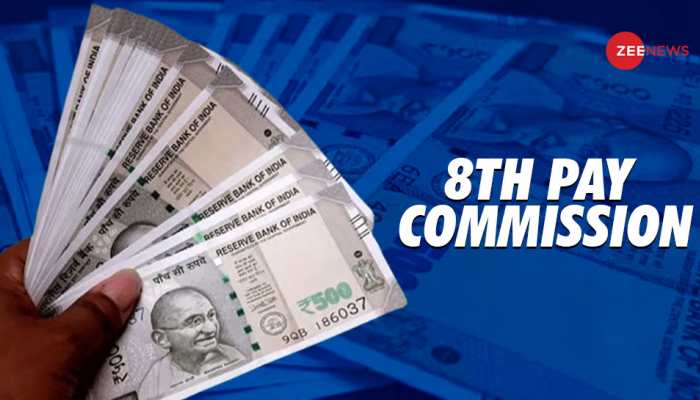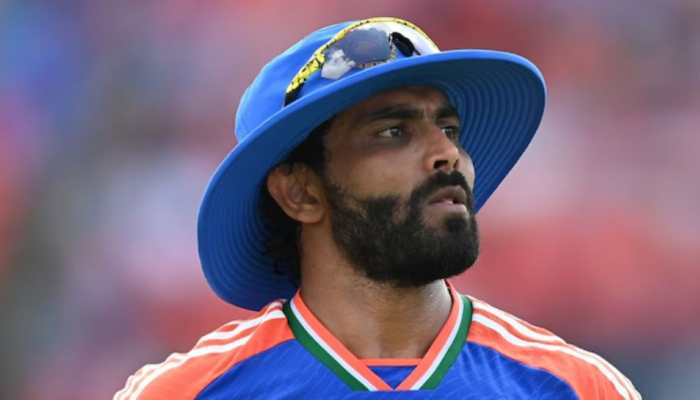Muhammad Yunus-Led Bangladesh Govt Following Pakistan's Path With New 'Anti-India' Plot? — EXPLAINED
In today’s episode, DNA tried to decode how the Bangladesh government is making moves to promote anti-India activities and violence against non-Muslims.
Trending Photos
) Muhammad Yunus, Chief Adviser of Bangladesh interim government. (Photo: PTI)
Muhammad Yunus, Chief Adviser of Bangladesh interim government. (Photo: PTI) Shocking developments have surfaced from neigbouring country Bangladesh, where two terrorists involved in anti-India conspiracies have received relaxation under the government of Muhammad Yunus. Following this, there are chances that this move might resurrect years-old terrorist activities.
A radical Palestinian-like ideology has found its way into Bangladesh. Several images have emerged from the Jamia Millia Islamia Madrasa in Jessore, Bangladesh. In the image, the appearance of the speaker resembles that of Abu Ubaida, spokesperson of Hamas's Al-Qassam Brigades.
Just like Abu Ubaida, the individual in the image has his face covered and is surrounded by armed militants. The attire, language, and intentions are eerily similar to Hamas—promoting violence against non-Muslims.
In today’s episode, DNA tried to decode how the Bangladesh government is making moves to promote anti-India activities and violence against non-Muslims.
Watch Full Episode Here
संभल के सांसद बर्क तो बिजली चोर निकले !
संसद में 'खूनी कांड' की 'वीडियो इंवेस्टिगेशन रिपोर्ट'
7 घंटे...5 आतंकी...सबसे बड़ा एनकाउंटर
देखिए #DNA LIVE Anant Tyagi के साथ#ZeeLive #ZeeNews #ZiaurRahmanBarq #Sambhal #Parliament@Anant_Tyagii https://t.co/E8QC9VXphq— Zee News (@ZeeNews) December 19, 2024
This ideology is not just present in Bangladesh's society but is now active within the Bangladeshi system and government as well. This new evidence has emerged as two terrorists, involved in anti-India plots, have found support from the Yunus government.
Twenty years ago, a major weapons cache was discovered in Chittagong, Bangladesh, consisting of AK-47s, mortars, rocket-propelled grenades, Uzi submachine guns, and thousands of grenades.
This event took everyone by surprise. Involved in this arms smuggling operation were former Bangladeshi Minister Lutfozzaman Babar, sentenced to life imprisonment, and ULFA’s military commander Paresh Baruah, sentenced to death. However, after Muhammad Yunus's government took power, these decisions have been overturned.
On December 18, the Dhaka High Court revisited the Chittagong case. Following this hearing, BNP leader Lutfo Zaman Babar was acquitted of all charges, and Paresh Baruah’s death sentence was commuted to life imprisonment.
The reactivation of a major anti-India network by Muhammad Yunus is evident in this case. But first, let’s revisit the plot behind the weapons smuggling operation from 2004.
In that year, a ship carrying a huge weapons cache arrived at the Chittagong port. Ten trucks loaded with weapons were offloaded, and these arms were intended for the insurgent group ULFA in the Northeast region of India, as well as other militant organizations. Although the weapons didn’t reach the insurgents at that time, the key figures involved in this operation are now once again active in Bangladesh.
Lutfozzaman Babar, who was acquitted, and his leader Khaleda Zia have had all charges dropped. Furthermore, the Jamaat-e-Islami, another accused party in this case, has had all bans lifted under Yunus’s government. Paresh Baruah's sentence reduction signals a troubling message: Bangladesh could once again become a base for ULFA, as it was in 2004.
It’s clear now that Muhammad Yunus appears to be following a path similar to what Pakistan has done in Kashmir: recruiting and training terrorists and establishing infiltration networks, all to force India to battle terrorism on yet another front.
Given the direction Bangladesh is heading, it seems the country may soon resemble Pakistan in terms of its radicalization and military involvement. In fact, retired military officers in Bangladesh are now issuing hollow threats akin to Pakistan’s nuclear rhetoric.
In an alarming turn, Bangladesh, once vocally critical of Pakistan, has now warmed up to its neighbor. In Cairo, during the D-8 summit, Muhammad Yunus and Pakistan’s Prime Minister Shahbaz Sharif held a significant meeting.
The most notable outcome was their agreement on economic cooperation, with Bangladesh seeking support from Pakistan in sectors like chemicals, cement, and information technology.
Stay informed on all the latest news, real-time breaking news updates, and follow all the important headlines in india news and world News on Zee News.
Live Tv







)
)
)
)
)
)
)
)
)
)
